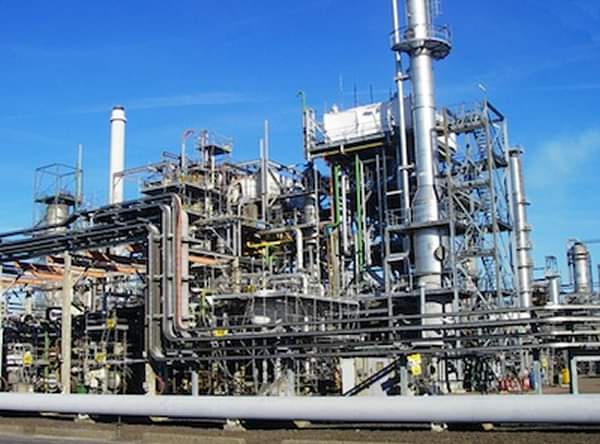JUST IN: Jubilation As Nigeria Gets Another New Refinery
The Warri Refining and Petrochemicals Company (WRPC), with a capacity of 125,000 barrels per day, has resumed production in Warri, Delta State.
This was made known by the Group Chief Executive Officer of the Nigerian National Petroleum Company Limited (NNPCL), Mele Kyari, during a tour of the facility on Monday.
Addressing his team at the plant, Kyari explained the importance of the development.
“We are taking you through our plant. This plant is running. It is not 100 percent. We are still in the process. Many people think these things are not real. They think real things are not possible in this country. We want you to see that this is real,” he said.
The tour also included the Chief Executive Officer of the Nigerian Midstream and Downstream Petroleum Regulatory Authority (NMDPRA), Farouk Ahmed, and other key stakeholders.
On December 7, it was reported that the Conversion Units of the Port-Harcourt Refinery of the Nigerian National Petroleum Company Limited (NNPCL) which are responsible for high-value products such as jet fuel and gasoline are not functional, despite claims by the NNPCL Group Managing Director, Mele Kyari that the facility was back and running.
The Conversion Units comprise of the catalytic crackers, hydrocrackers, or cokers and process the heavier fractions into higher-value products like gasoline, jet fuel, or diesel, top sources in the refinery explained on Saturday.
It was reported last week that the Crude Distillation Unit (CDU) which is the primary component of the refinery is the only operational activity and Nigerians cannot yet get the actual values for which the Refinery was built.
“Residual fuel oil from the CDU can be upgraded into lighter, more valuable products,” the source said further.
It was reported days ago that the Port-Harcourt refinery shut down operation “at the moment” with only its non-petroleum unit running which is the Crude Distillation Unit (CDU).
Human rights lawyer, Femi Falana, SAN, had also challenged the NNPCL GMD, Mele Kyari, asking him to explain to Nigerians how $2.9 billion meant for the smooth takeoff of the country’s three refineries was spent.
Falana had also queried why the Port-Harcourt refinery was only blending 60,000 barrels of crude oil per day, while the 150,000bpd capacity is abandoned as well as the Warri and Kaduna refineries.
The human rights lawyer spoke in Lagos State at the commissioning of the Nigeria Union of Petroleum and Natural Gas Workers (NUPENG) Tower.
Speaking, an authoritative source at the refinery explained that Nigerians must know that the Conversion Units which are not working yet at the Refinery are at the core of its functions and what the government ought to give attention to.
“Conversion units (like catalytic crackers, hydrocrackers, or cokers) process these heavier fractions into higher-value products like gasoline, jet fuel, or diesel. For example: Residual fuel oil from the CDU can be upgraded into lighter, more valuable products.
“This is for Nigerians to know the politics they are playing. The refinery process is not well optimised without the conversion unit. Right now they want to sell the heavier ends to a Dubai company just for them to continue running. The heavier ends should have been converted to give you more useful lighter end products which will add value to the crude,” the source revealed.
“Before the current GMD (Kyari) came in, Warri and Port-Harcourt refineries were running the CDU plant along with some conversion unit before he then said we should shut down the plant in 2019.
“His reason was that we were not adding value to the crude. What we are doing now running the Area 5 CDU is not different from what we were doing before 2019. Making noise about the CDU running does not make sense,” the source revealed further.


